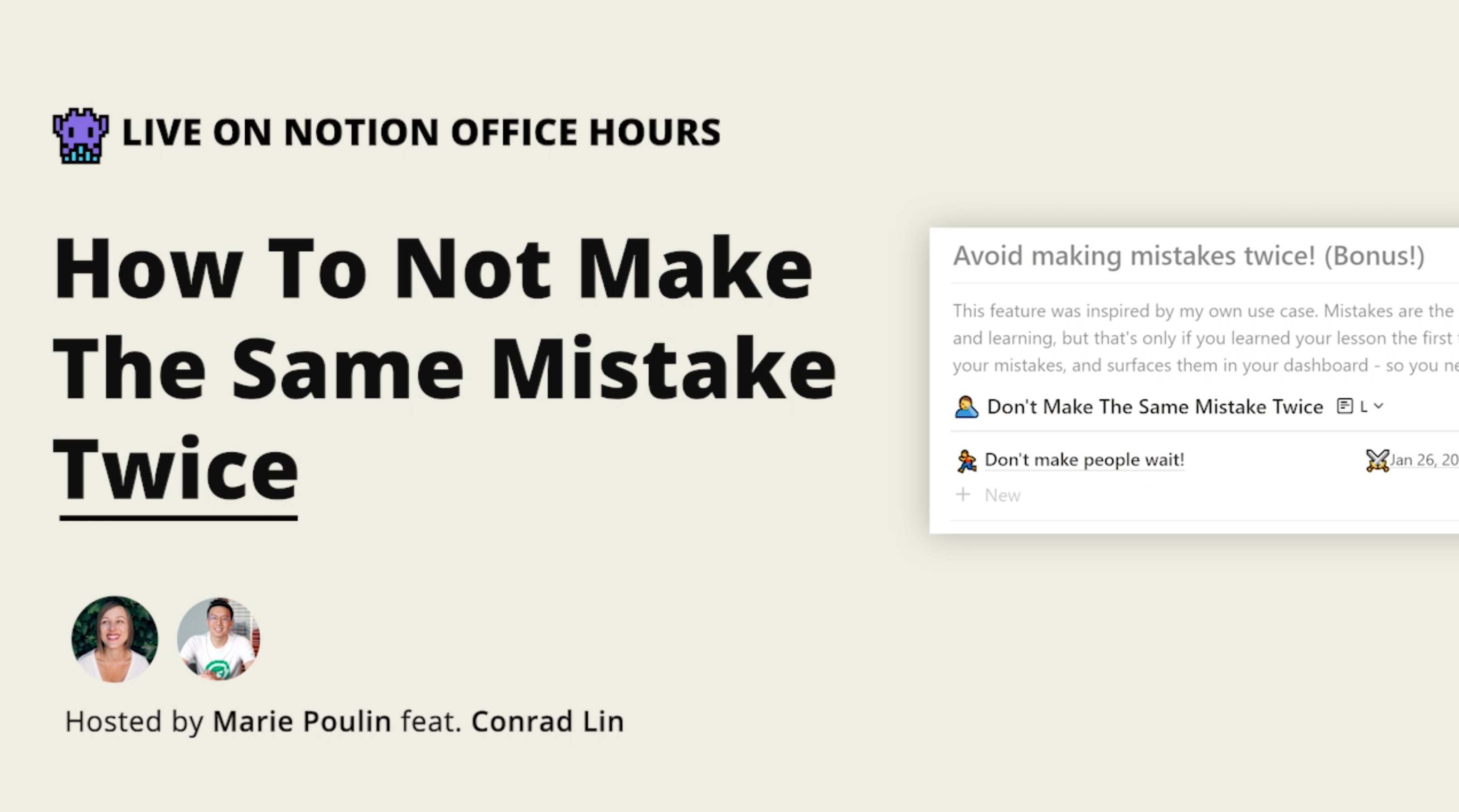How to not make the same mistake twice
Making mistakes is the cornerstone of growth and learning, and it's an occasion to celebrate whenever we are wrong. It's only through learning where we are wrong today, that we can be more correct tomorrow. However, if you find yourself making the same mistake repeatedly - that's a big problem that needs immediate correction.
As with every action, mistakes are only worth doing when they can be meaningful - and the most meaningful conclusion for any mistake is learning to never do it again. Knowing this, I want to share a way I've exploited one of our most human behaviours, to ensure that I don't make the same mistake twice.
The Hypercorrection Effect
As humans, we are influenced by the hypercorrection effect. Essentially, its an innate human behaviour that manifests itself when we make high-confidence errors. It's tough to be embarrassed, and when our mistakes are made known, our brain over-compensates to learning the accurate information quickly, and retain it in our long-term memory.
For example, if you were certain that Toronto was the capital city of Canada, and later find out that it was actually Ottawa, you would be much more likely to remember this information in the future.
Being Honest and Accountable
Our brain works hard to not to be wrong again because historically, being wrong gets you killed. However, we can only take advantage of this effect when the following situations are presented:
- When our mistakes are spelled out clearly, and reflected upon.If we choose to dismiss or make light of the fact that we made a mistake, we will not learn from the experience.
- When the mistakes we made are not forgotten and kept on the top of mind.This needs to be balanced well, without stressing ourselves unnecessarily throughout the day.
Sticking with these principles, I came up with a sustainable and proven method to not make the same mistake twice.
First, I record my mistakes when I do my daily reflection

By keeping track of my mistakes, I can be honest with myself about the things I did wrong, and how I could have done them right. This information is stored into a database, to be surfaced in my dashboard.
Then, I can observe the mistakes I've made in the past week

My dashboard gives me a birds-eye view of what's happening in my life, and I usually look at it twice a day. Whenever I see my mistakes over the last week exposed, I make conscious efforts to avoid making them again.
Finally, whenever my database recognizes that I have made a mistake more than once, it will show an alert

This keeps me accountable - often, we fool ourselves to believe that we have only made a mistake once when in reality it has happened multiple times. With this methodology, I am able to see how many times I've made a specific mistake, and on which days - so I can take adequate self-correction measures and analyze my behaviour.
 Watch how I built this database in this live video. Try it out for yourself with the template here!
Watch how I built this database in this live video. Try it out for yourself with the template here!